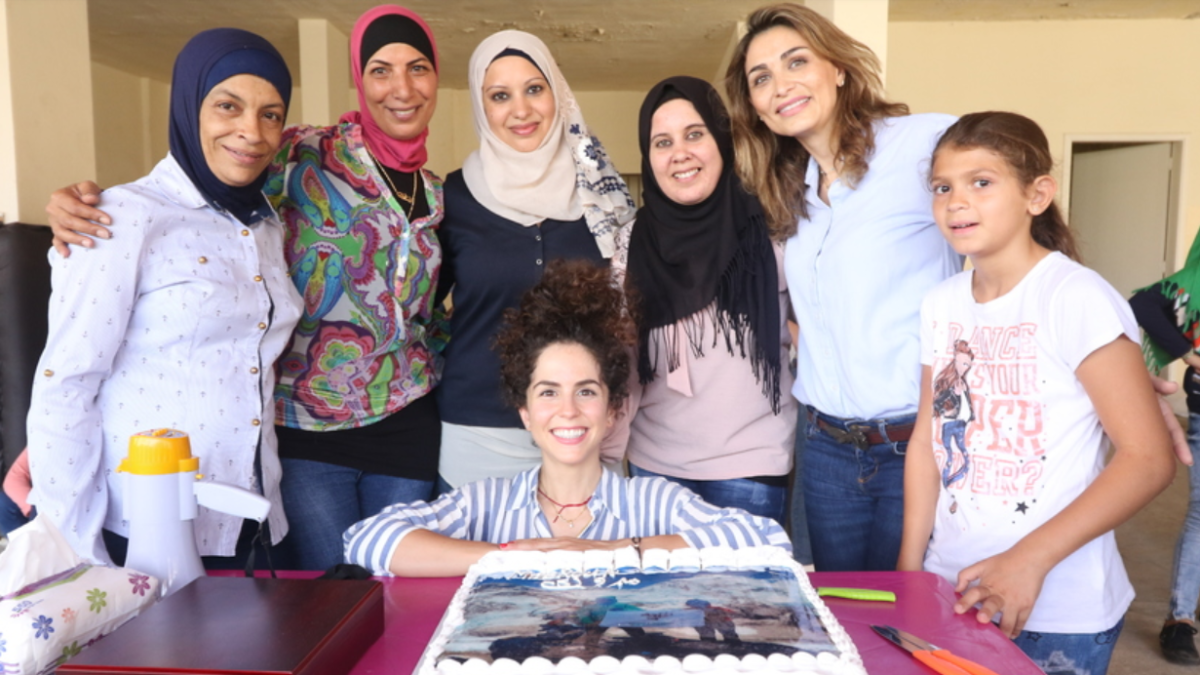How I’m working alongside Syrian refugees in Lebanon to help them build a better future

During World Refugee Week, Yasmin Kayali, co-founder of charity Basmeh and Zeitooneh (B&Z) and CAFOD partner, explains the challenges the coronavirus pandemic has brought to refugee communities and how she is working alongside these communities to help them better prepare for the future.
Life in the Shatila refugee camp
I helped set up Shatila Studio in the Shatila refugee camp to create a safe space for Syrian refugees and their host communities, to provide women with skills to build incomes to support their families, so they don’t have to rely on hand-outs. It became a place of sunlight and hope for the hundred women who work there.
When I am struggling, I think back to my visits to the Shatila refugee camp.
Find out more about CAFOD’s work with refugees during the coronavirus pandemic
The area is a place of wonder. Formed in 1949, it was initially a Palestinian refugee camp, home to around 20,000 inhabitants. Today, it is estimated more than 43,000 people live within the tiny one-kilometre space, with entangled electric wires, slum-like buildings, and tight corridors.
When I meet with the women of Shatila Studio or the children at the B&Z learning centre, I feel their warmth and welcome. I see their eagerness to live and their happiness to be at the community centre, which has become a second home to many.
Adapting our projects during lockdown
During the pandemic, we worked hard to pivot our programmes to support refugees and their host communities with food baskets and hygiene kits. We also gave cash allowances, for refugees that desperately needed medicines for themselves or family members.
We moved our production at Shatila Studio from embroidery to producing washable, reusable facemasks. The masks, which are selling very well, ensured that we could sustain the women’s salaries during the lockdown period.
Help fund a hygiene pack for a vulnerable family
For each item sold, one mask is donated to someone who cannot afford one. By doing this, we hoped to help to minimise the shortage in medical facemasks on the Lebanese market and support the local community.
Even though lockdown is lifting, emergency aid is now more vital than ever
Imagine the unease felt by a mother cooped up with her children in a single room. Cooking, studying, washing – in a single room. Outside, the heat is stifling, the air thick with rotting garbage. There is no clean water and little food, if any.
This is the situation for many refugee women, my fellow Syrians, who now face a devastating future without the work they need to feed their families.
And they are the reason why, when asked if we are going to stop our coronavirus resilience campaign due to lockdown lifting, I tell the truth: we need this campaign now more than ever.
Donate to CAFOD’s Coronavirus Appeal now
Looking towards the future
As world economies grapple with the impact of coronavirus, it is getting more difficult to find funding to support our work. Despite this, I remain a very firm believer that when you try to do good, doors and windows open for you.
Now, more than ever, we need to highlight the issues affecting refugee communities. With their voices and ours, we must continue to call for the end to the conflict and must ensure that refugees, especially women, have what they need to restore dignity in their lives.
An earlier version of this article appeared in Marie Claire on 16 June 2020. You can read the full article on their website.